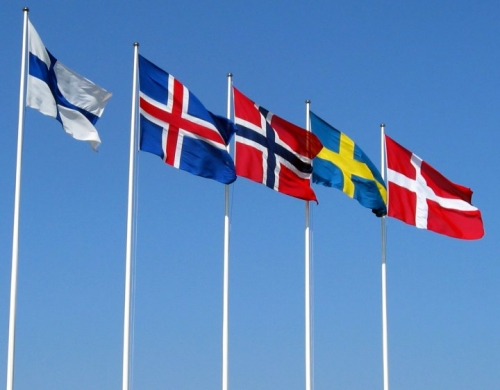The latest TI figures: no surprises
Chris Hamblin, Clearview Publishing, Editor, London, 11 December 2014

Little has changed on this year's recently released Transparency International 'corruption perceptions index', with Denmark as the clear winner of the poll. Offshore centres have also fared quite well.
Blonde hair, blue eyes and Protestantism dominate the top of the Transparency International corruption perceptions index as ever, with the usual suspects – most of them countries that the United States has recently invaded or sanctioned or staged 'black ops' in – hovering around the final position. One thing has changed, however: the report stands for the first time in the shadow of a far better researched one – the Organisation for Economic Co-operation and Development's bribery report, 15 years in the making – which casts serious doubt on the supposedly low levels of corruption in Western states.
Indeed, the OECD report proves beyond reasonable doubt that the impetus for most bribes of any size comes from the onshore headquarters of multinationals with the connivance of senior managers. In the long run this might tar the much-venerated TI index with the same brush as the world's largest ratings agencies, which are criticised for being unfairly biased in favour of the dominant Euro-American status quo, down-playing credit and market risk in Western countries and exaggerating it elsewhere.
It is telling that the OECD report was based on fairly hard data from actual court cases, whereas the 'corruption perceptions index' is just that – an index of perceptions gleaned from conversations with business and governmental people both in and outside each country that TI is evaluating. The contrast in thoroughness between the two pieces of research is striking.
At the bottom of the index in joint 174th position are North Korea and Somalia. Nigeria, which used to be a regular at the bottom of the chart, has risen almost 40 places to 136, a place it holds jointly with Russia. Also at the bottom are Sudan (173), Afghanistan (172), South Sudan (171) and Iraq (170).
Denmark is the clear winner of the poll, relegating New Zealand, with which it shared the top spot last year, to number 2. Singapore is still in the top 10 at 7. The rest of that select group, in reverse order, are Finland (3), Sweden (4), Norway and Switzerland (5 jointly), Holland and Luxembourg (8 jointly), and Canada (10). The UK, which in previous years has been in the top 10, is now 14. Ireland and the United States are on 17.
Offshore centres have fared quite well. Barbados and Hong Kong are at 17 jointly, then there are the Bahamas (24), the United Arab Emirates (25), Qatar (26, a position it shares with France and St Vincent and the Grenadines), Cyprus (31), Israel (37), Malta and the Seychelles (43), Mauritius (47), and Bahrain (55). Kuwait is at 67. Thailand is at 85, along with India, Sri Lanka, the Philippines, Jamaica and Trinidad. The Yemen is bottom of this bracket on 161, but this is exceptional. Kyrgyzstan has an offshore sector and is at 136, making it the second lowest.
Other entries of note include misgoverned Zimbabwe and Burma, both at 156, Ukraine at 142, Iran at 136, Pakistan at 126, Argentina and Indonesia at 107, Mexico at 103, Italy at 69, Austria at 23, and Japan at 15.












